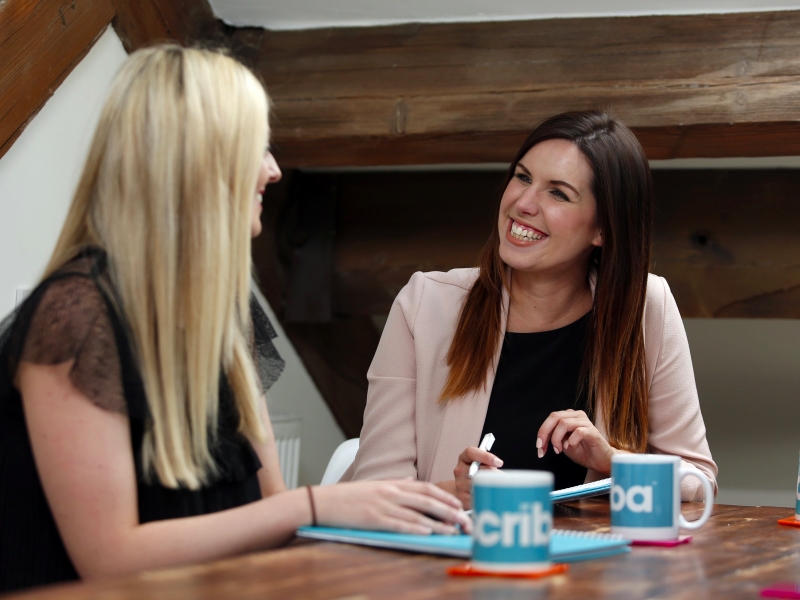
In business, it’s notoriously hard to plan for every eventuality – no matter how hard you try. But, whether scenario-planning is your thing or not, an innate sense of preparedness will stand you in good stead to deal with the unexpected, believes Katie Mallinson, founder and MD of Scriba PR.
I admit that I’m a planner, but not in the traditional sense – I think my approach is quite agile in truth.
When I set up Scriba PR I didn’t have a five-year plan, yet I do consider everything to the Nth degree.
For instance, I’ll ponder what to do if this or that happens – where there are gaps, opportunities and challenges, and what each of those might ‘cost’ if overlooked. And further consideration inevitably comes from almost every thought processes.
That shouldn’t be seen as a bad thing though – quite the opposite – because it helps to ensure every decision is hopefully as informed or at least, considered, as possible. It also means that I feel prepared too, which I believe is important when you genuinely care about the future of not just your company, but your colleagues.
The big break (up)
So, where did this passion for preparedness come from? After leaving the relative safety of a full-time job to set out as a freelancer specialising in complex B2B briefs, people told me I was trying to be ‘too niche’. But I tried to think what was the worst that could happen? I could go back and diversify or return to agency employment if it didn’t work out.
So, my initial planning was just around me – how I wanted to operate in order to feel fulfilled and who I wanted to work with, with a contingency / fall back if I’d totally misjudged the moment.
Fast-forward to employing a team of 10, and now decisions are focused around the impact they might have on colleagues, our collective income and our time and wellbeing. You can never entirely predict what’s around the corner, of course. A new client or colleague might come on board, or you might lose someone – but it’s the ability to adapt quickly that’s the difference between success and failure. And this is where I believe scenario planning, to enable preparedness, now comes in.
My plans are often in my head or scribbled on various notepads. I also avoid writing lengthy reports or strategies, simply because a three-year map can go out of the window completely if the business goes through a period of change in that time. And let’s face it, in the modern economy climate, change is almost a certainty!
When I do plan, I go into granular detail
I thought for years about setting up Scriba before I actually took the plunge. I knew there was a gap for a PR company which really cared about telling the story of businesses who thought they would always remain the ‘best kept secret’ within their particular sector. In the end, the decision to start out was made on the flip of a coin – something which I’d never do normally.
But I’d thought about it for so long, and weighed up every possible outcome, that I felt ready and equipped – I just needed that push.
Although I might not have the next 36 months mapped out in granular detail for example, knowing what matters to the company, and having my current strategic workload broken down into rigorously-considered ‘chunks’ gives me peace of mind and focus – as well as enabling me to sleep at night!
While some people think they have all bases covered – thanks to a lengthy strategy document – I like to be kept on my toes by colleagues, clients and the business climate. I think it’s important not to get too comfortable, because you stop being in tune with what’s happening around you, and that’s when you risk missing upsell opportunities, or a customer becoming unhappy, for instance.
How to cope if something goes off-plan
That’s not to say you can predict everything, of course. So, in the immediate aftermath of an unplanned event, I believe that it’s completely okay to spend some time alone to think things through or get on the phone to a confidant – simply to vent. The important thing is to take the opportunity to panic, feel sorry for yourself, or forget about it for an evening – as long as you then move to ‘action stations’ as soon as possible afterwards.
Although it may come as a shock to those who know me solely in a business capacity, I’m not always ‘Miss I’ve Got This’. I do have ‘yikes’ moments, but I also realise that we’re all allowed to have them! So, I embrace the ‘eek’ times, let them happen, but ensure I reset and refocus, within 24 hours if possible.
I may not have considered every scenario, and I will inevitably encounter something I probably haven’t planned for, but preparedness allows me to look objectively at what I need to do next.
Handling the unexpected
While on maternity leave I fell and broke my back. I’d planned to be away to have a baby, but not to spend my first few months as a mother unable to walk. When it happened, the first person I rang was my mum (to get help!), and as soon as she arrived – while I was still lying on the floor – I was asking her to get on the phone to Scriba’s operations manager, Louise Jaggar.
Giving her as much notice as possible to plan internally – while making colleagues and clients aware of the situation – meant everyone knew what was happening before the day was out, and I could focus on me. It’s important to prioritise your decisions, and your health and family should always come out on top.
Of course, I could never have predicted this, but I do believe you can prepare for the unexpected happening in your personal life – whatever form that make take – by having a ‘crisis plan’. It may only exist in your head, but I think it’s important to be clear who needs to know what, and when, and surround yourself with a team who can support you if the proverbial unfolds.
In my case, having people around me to clear my diary – and notify the relevant people when required – meant that as a collective, we could deal with the situation as it evolved, rather than flying into a knee-jerk reaction of panic.
So, in summary, I’d say to be at peace with the fact that you can’t prepare for everything. If you surround yourself with people who truly care, you’re in the best possible position to tackle things as they come. The more often you find yourselves dealing, successfully, with the unexpected, the more resilient you’ll be the next time it happens – you learn that’s life, deal with it and move on.








